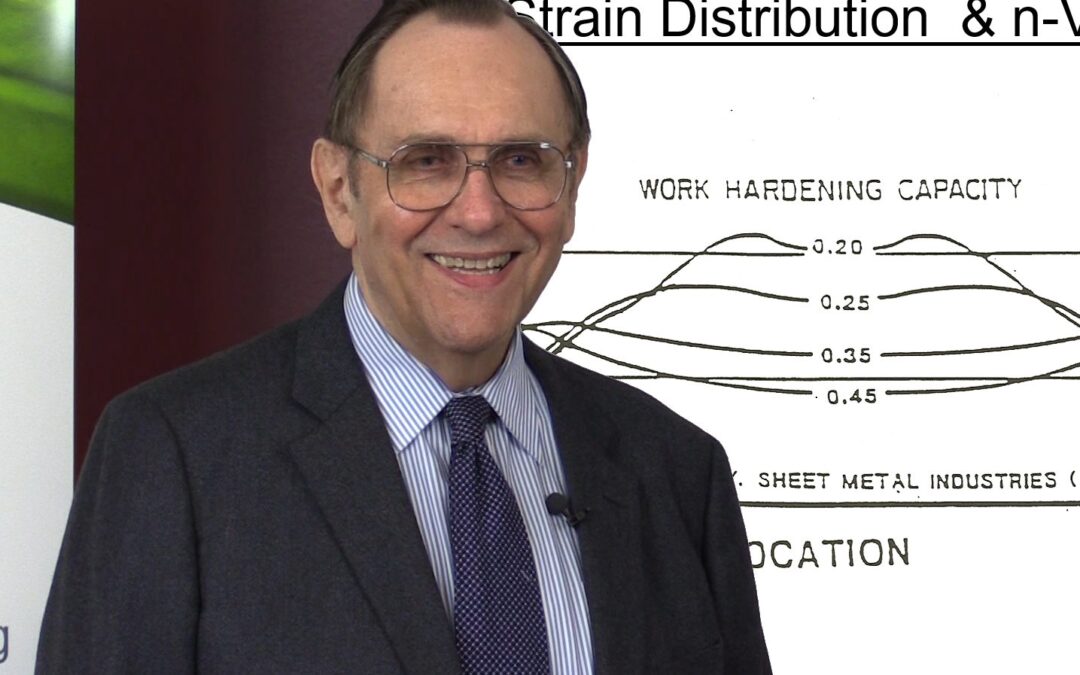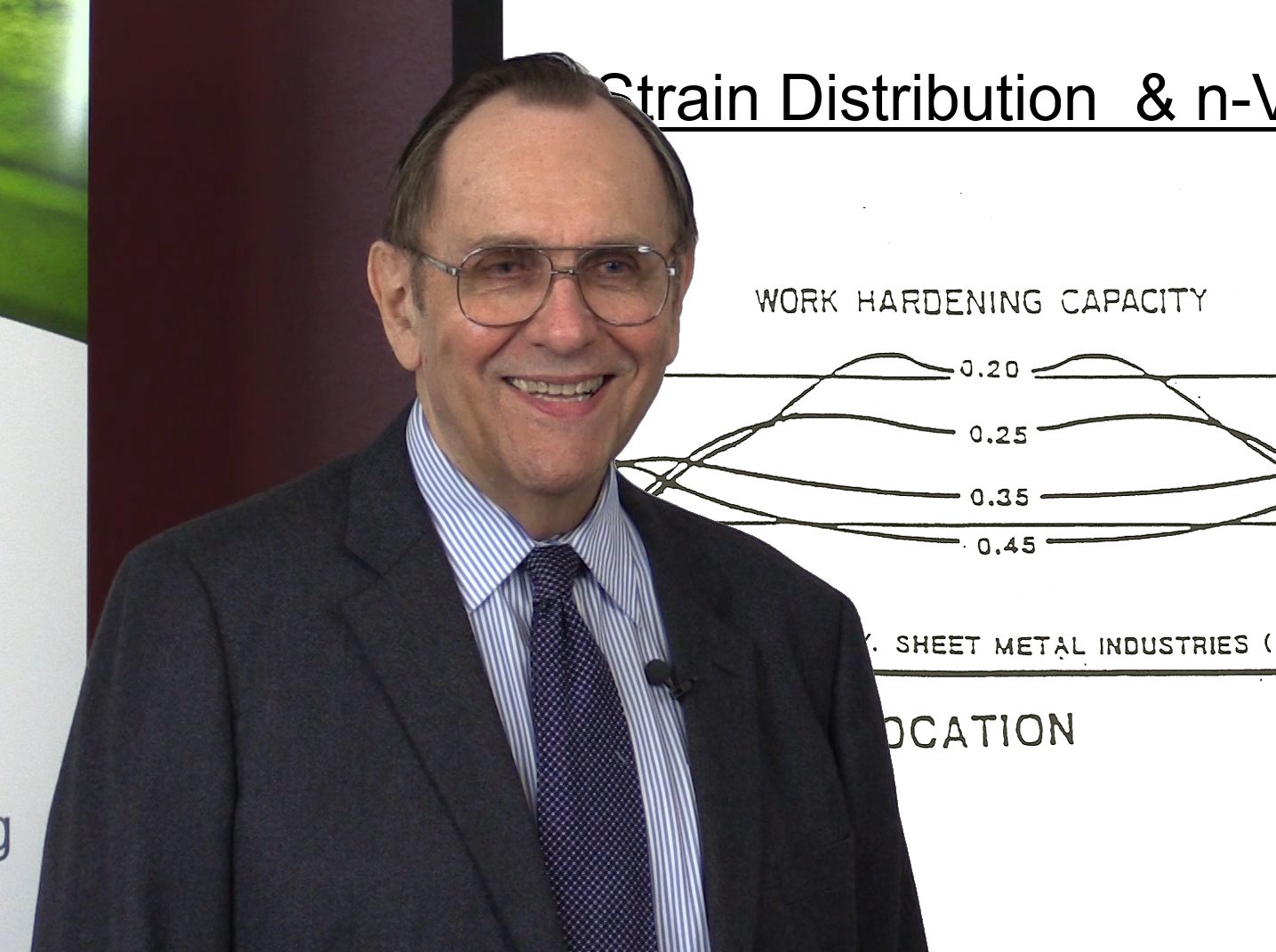
Dedicated in Memory to Dr. Stuart Keeler
We were honored at WorldAutoSteel to have Dr. Stuart Keeler as the author of our first five volumes of AHSS Application Guidelines and an Advisor on Version 6. His knowledge and experience were instrumental in creating a repository of best practices that is one of the best in the world. He was a joy and privilege to work with, and many of us will always fondly remember our interactions with him in developing each version of the Guidelines. It was a great sorrow to us all when he passed away in 2019. It is to him we dedicate this first online edition of the AHSS Application Guidelines. May it carry on and facilitate his pioneering efforts to bring science to the press shop floor for the continual improvement and innovation of steel’s use in the manufacturing of vehicles and other equipment.
As a commemoration of Dr. Keeler’s long service to the steel industry, his dedication to the Guidelines and our own personal love and appreciation of his friendship, we share with you the details of his long and distinguished career. We hope it will inspire.
STUART KEELER, Sc.D.
Dr. Keeler began his extensive sheet metal career at the Massachusetts Institute Technology, where he received his Doctor of Science Degree in Mechanical Metallurgy. Dr. Keeler’s doctoral research on sheet metal forming limits led to his development of the Forming Limit Diagram, now used throughout the world to predict forming severity and tearing of sheet metal stampings.
A two-year stint at the Detroit Army Tank Automotive Command as an Ordnance Corps First Lt. in the Metallurgical Research Section followed graduation. During his tour of duty, Dr. Keeler started taking his exams for Professional Engineer – Metallurgy in the state of Michigan. In 1965, he completed his mandatory experience period and passed his final exam.
The next 24 years were spent at National Steel Corporation – primarily as Manager of Automotive Research in Detroit. During his stay at National Steel, he pioneered the notion of bringing science to the press shop, creating circle grid analysis, thinning strain analysis, statistical deformation control (SDC), and many other press shop troubleshooting procedures. In the early 80’s Dr. Keeler conceived, created, and helped equip the National Steel Product Application Center in Livonia, Michigan, which became a benchmark for customer technical assistance by other steel companies. His last major project for National Steel was to research and write a state of the art book for the American Iron and Steel Institute entitled Automotive Sheet Metal Formability – Report AU89-1.
In March of 1987, Dr. Keeler joined the Budd Company Technical Center as Manager of Sheet Metal Technology. As a Tier 1 supplier to the automotive OEMs, Dr. Keeler was responsible for all research, development, and technology transfer for sheet metal stampings and castings. His major accomplishment was the implementation of virtual sheet metal forming (computerized die tryout). Dr. Keeler also became trained in the Shalnin Problem Solving Process, after which he became The Budd Company corporate trainer. He then trained and coached 30 teams within the company divisions. On 1 October 1999 he retired from The Budd Company as Manager of Technical Development to continue his sheet metal forming work as Keeler Technologies LLC.
In recognition for his work in bringing science to the press shop, Dr. Keeler was elected a Fellow in both the Society of Automotive Engineers (FSAE) and the American Society for Metals (FASM). ASM International also presented Dr. Keeler with the 1992 William Hunt Eisenman Award for his contributions to the practical application of science and materials engineering. He was elected to two-terms during 1968-1972 and one term during 1988 to 1990 to the presidency of the International Deep Drawing Research Group. Dr. Keeler also served in several positions within SAE – last as Editor for SAE Transactions for Materials and Manufacturing.
Dr. Keeler has conducted courses, seminars, and lectures throughout the world. All of Dr. Keeler’s presentations — for the university or the press shop — were dynamic, interactive, down to earth, and even entertaining. He also has a 50-year history of writing practical and understandable articles and papers read by persons in both steel mills and press shops. Given a choice, however, he would be found on the press shop floor.
